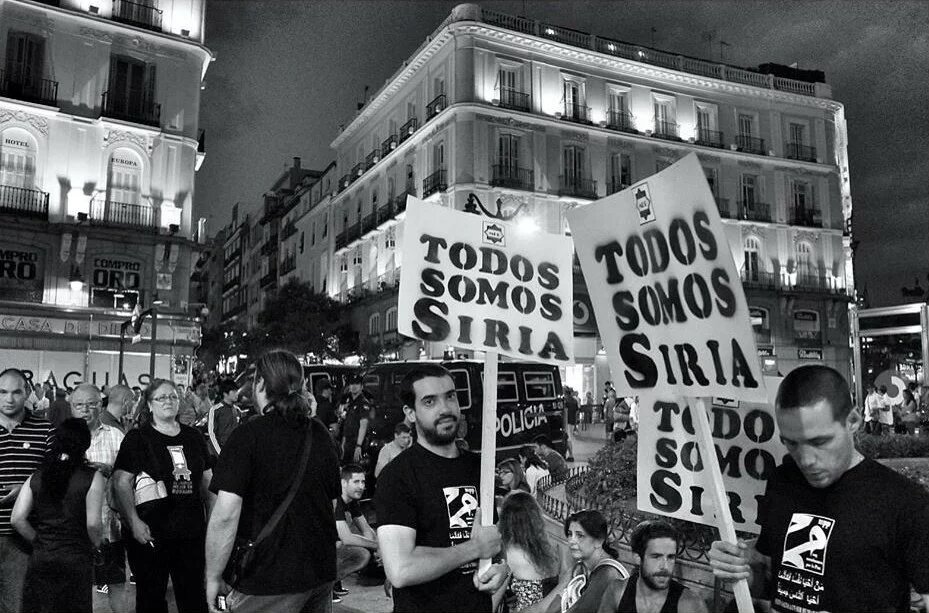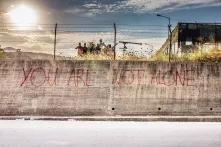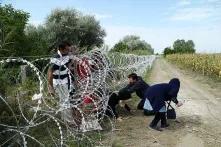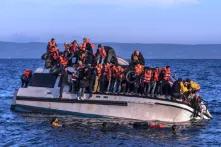
Before the Spanish reelections on 26. June 2016 the democratisation of the European institutions and the solution of the refugee crisis became relevant issues of the political debate.
"The EU is and will remain the environment in which all our countries can develop in greater harmony and solidarity." These were the words of Pedro Sánchez, socialist candidate for the Spanish prime-ministership during his investiture debate on 1st March.
In the following days we witnessed the failed investiture of Pedro Sánchez. After the failure of Mariano Rajoy (Partido Popular, PP) to form a government, Pedro Sánchez (PSOE) had taken the initiative. But as the Socialist Party only had the support of Citizens (Ciudadanos), they lost both investiture votes securing the support of only 131 members of the 350-strong parliamentary assembly in the second round. Now, it is time to renegotiate and to form a new government, otherwise the Parliament will be dissolved and the country will go for snap elections on 26 June (three days after the UK’s EU referendum).
Reconnecting the EU and Spain
In his investiture speech, the socialist leader expressed his ideas about Europe and how it needs to change. That he did so is a relevant fact as the national election and the subsequent negotiations proceeded without much interest in the European Union. The challenging situation about Catalonia and the tough competition among political parties did not leave much room for European issues even though the eurozone crisis and its consequences have affected citizens’ lives deeply.
Not only Sánchez’s investiture speech but also the agreement signed between PSOE and Ciudadanos the EU refers to the European Union. In the latter both parties express their wish ‘to promote a further deepening of European integration at all levels: political, fiscal, monetary and social, based on European democratic values, transparency, solidarity and accountability.’ They also point out the urgency to work on two issues: the democratisation of the European institutions and the solution of the refugee crisis.
Although this may not sound like a big deal, the explicit mention of these points has great significance. As I wrote in my previous post, the positive image of the EU has been a constant in Spain because of its association with democracy, prosperity and progress. This enabled a positive consensus among the elites about the European Union. However, some critical voices have appeared on the horizon. Even the PSOE, which was in government when Spain joined the EU and is an ardent supporter of the Union, is critical about many ideas and policies the EU is currently pursuing.
Although in his speech Pedro Sánchez showed his commitment to the EU, he also pointed out that, in his opinion, the increasing distrust of the EU was the result of questionable decisions taken at European level. ‘The European institutions,’ so he said, ‘should be closer to the reality of citizens of which it sometimes seems to be disconnected.’ The call for more transparent and democratic institutions is not new among Spanish citizens. The difference is that now political parties are picking up these claims too. In their agreement PSOE and Ciudadanos suggest various measures to democratise the European institutions such as improving control systems or strengthening accountability mechanisms.
Refugee crisis
Undoubtedly, the greatest challenge the EU is currently facing is the refugee crisis. This second point raised by Pedro Sánchez has caused great concern in Spain, especially after the preliminary agreement between the EU and Turkey. All political parties in the Spanish Parliament, with the exception of the PP immediately rejected this deal as immoral and against international law. They demanded that acting Prime Minister Rajoy appear in the Parliament to discuss the Spanish position.
After his refusal to do so, Pedro Sánchez sent a letter asking him not to defend this agreement as it would be against the will of the majority in the Parliament. A few days later, Foreign Minister Jose Manuel Garcia-Margallo announced a change of the PP’s position saying that Spain ‘strongly opposes any expulsion of a collective nature’ and described the proposal as ‘unfair … and not compatible’ with European values. After that, Parliament agreed a common position about the EU-Turkey deal for the summit of 17 and 18 March.
In the meantime Spanish civil society has mobilised against the EU-Turkey agreement and demonstrations took place in Valencia and Madrid. The big trade unions and a group of NGOs also called for demonstrations in several cities across the country during the summit. They demand solidarity and responsibility, values which seemed to have got lost in the way the EU has been dealing with the refugees. As a sign of protest against this agreement, the European flag is flying at half-mast in several Spanish city halls.
Some reflections
If we take into account that last summer it was agreed to relocate 17.000 refugees in Spain and 160.000 refugees in the whole of the EU, the failure of European migration and asylum policy is obvious: so far Spain has only relocated 18 and in the EU the number is still under 1.000. In light of these data we seriously have to question whether we are trying hard enough to solve this crisis. The EU-Turkey deal reached last Friday casts doubt on it. Although Rajoy called the deal ‘reasonable, law-abiding and respectful of the European tradition of defending human rights’, opposition parties have criticised it harshly. It is true that the text includes the demands of the Parliament but they want to wait and see how it will be implemented.
The lack of a joint response by all EU Member States and the lack of political will among European leaders to come to a common solution of the refugee crisis have undermined the credibility of the European project. European leaders should rise to the challenge and come to a solution of the crisis which is based on the principles of solidarity and sharing of responsibility.
This may not be an easy task, but if we choose for ‘a further deepening of European integration’, we have to build a more social Europe, one that does not criminalise the most vulnerable people. We have to strive for a common European policy on asylum and immigration which is not based on national interest and ensures the respect of human rights. This is about people and they deserve the EU’s combined efforts. Time will tell whether ‘the EU is and will remain the environment in which all our countries can develop in greater harmony and solidarity’ as Pedro Sánchez claimed in his investiture speech.
This article was first published on 21. March 2016 on our blog Reconnecting Europe.


